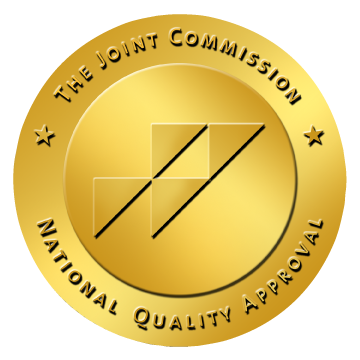According to the World Health Organization, about 5% of the world’s population suffers from depression. Many treatments for depression have been developed over time, but every person is different, responding differently to various forms of treatment. Often, it’s a matter of experimentation to discover what combination works best for the individual. However, it’s been found that holistic treatment, meaning treating both the body and the mind, is most effective.
Holistic treatment may consist of any combination of therapy, medications, lifestyle changes, and alternative treatments, such as herbal supplements. Patients should work with their medical provider to find the most effective and safe holistic treatment combination.
In studies, two types of therapies have shown to be most effective in treating depression.
Cognitive behavioral therapy focuses on recognizing negative thoughts and challenging them to turn them into more productive thoughts. For example, negative thoughts about a current stressful situation can become thoughts of how to correct the situation or to make the situation an opportunity for positive change.
Interpersonal psychotherapy is another type of treatment for depression that focuses on improving personal relationships by understanding how your emotions affect those relationships. When a patient has better relationships with the people in their lives, they have a support system to lean on, which can lead to improved mood. Their change in mood also helps their relationships, leading to a circular effect.
Often, a combination of both these therapies is most effective.
The most commonly prescribed medications for depression are selective serotonin reuptake inhibitors (SSRIs) which include medications like Zoloft, Prozac, and Paxil. They work by increasing levels of serotonin, which regulates mood, in the brain.
Serotonin-Norepinephrine Reuptake Inhibitors (SNRIs) are also sometimes prescribed, which work by increasing levels of both serotonin and norepinephrine in the brain. SNRIs include Cymbalta and Effexor.
Other classes of medication for depression include tricyclic antidepressants, atypical antidepressants, serotonin modulators, and monoamine oxidase inhibitors.
All of these medications often produce side effects and affect everyone differently. It’s usually a process of trial and error to find the right medication or combination of medications for each individual.
Treating the body as part of holistic depression treatment involves adopting healthy lifestyle habits.
Exercising regularly has been shown to ease depression symptoms by offering several benefits. Exercise releases endorphins, which increase feelings of well-being. Physical activity is also a distraction from negative thoughts and is a healthy coping mechanism for dealing with stress or negative emotions. Feeling and looking better from the effects of exercise also helps people gain confidence.
Feeling good physically by eating a healthy diet can prevent depressive episodes and alleviate depression symptoms. A healthy diet should consist of fruits and vegetables, whole grains, fish and other healthy proteins, and low-fat dairy. Foods to avoid include fatty red meat, processed foods, sweets, and high-fat foods like butter.
Sleep and depression have a circular relationship. Poor sleep patterns can lead to depressive symptoms and depression can lead to sleep issues like insomnia. It’s best to keep a regular sleep schedule, avoid napping during the day, and avoid alcohol, which can disrupt sleep. People who continue to have sleep issues should work with their physician and therapist to find solutions.
Several alternative treatments have shown various levels of effectiveness in the treatment of depression.
Acupuncture in traditional Chinese medicine is thought to rebalance the body’s natural energy flow and improve health, including mental health. Limited evidence shows that acupuncture may reduce the severity of depression symptoms. Acupuncture comes with some side effects, particularly if the patient has certain medical conditions or takes certain medications, so consultation with a medical provider before starting acupuncture is recommended.
Stress and anxiety are two of the main triggers for depression in many people, and meditation can help focus the mind away from negative thoughts that occur with these triggers. Practicing meditation regularly can train the brain to achieve that focus in stressful situations, thus reducing the risk of depressive symptoms.
Practicing yoga can decrease depression symptoms by calming the mind. It can also be a source of social interaction and improved physical health, which can boost confidence. Yoga has also been shown to improve sleep quality.
Limited evidence, and much anecdotal evidence, shows that certain dietary and herbal supplements can help ease depression symptoms.
St. John’s Wort is the most well-known herbal supplement, but it can cause many side effects and have serious interactions with certain medications, including antidepressants. People who use this supplement should do so only with medical advice and use extreme caution.
Omega-3 fatty acids are another option, and are found in cold-water fish, and certain nuts like walnuts. Supplements are also widely available, but high doses should be used with caution and medical advice.
Many vitamins and minerals have been shown to reduce depression symptoms. Nutritional deficiencies of certain vitamins may also alter neurotransmitters in the brain, such as serotonin and dopamine.
Vitamins and minerals that may help with depression symptoms include:
Eating foods that contain these vitamins and minerals may help, but supplements can be taken as well. Patients should just take care not to take higher than recommended dosages.
If you suffer from depression, it can take time to find the right combination of therapies for you. It’s important to work with a physician and your therapist to find the most effective path. A provider like NEMG can offer guidance and resources that can help you to conquer depression and live a healthier, happier, more fulfilling life.
